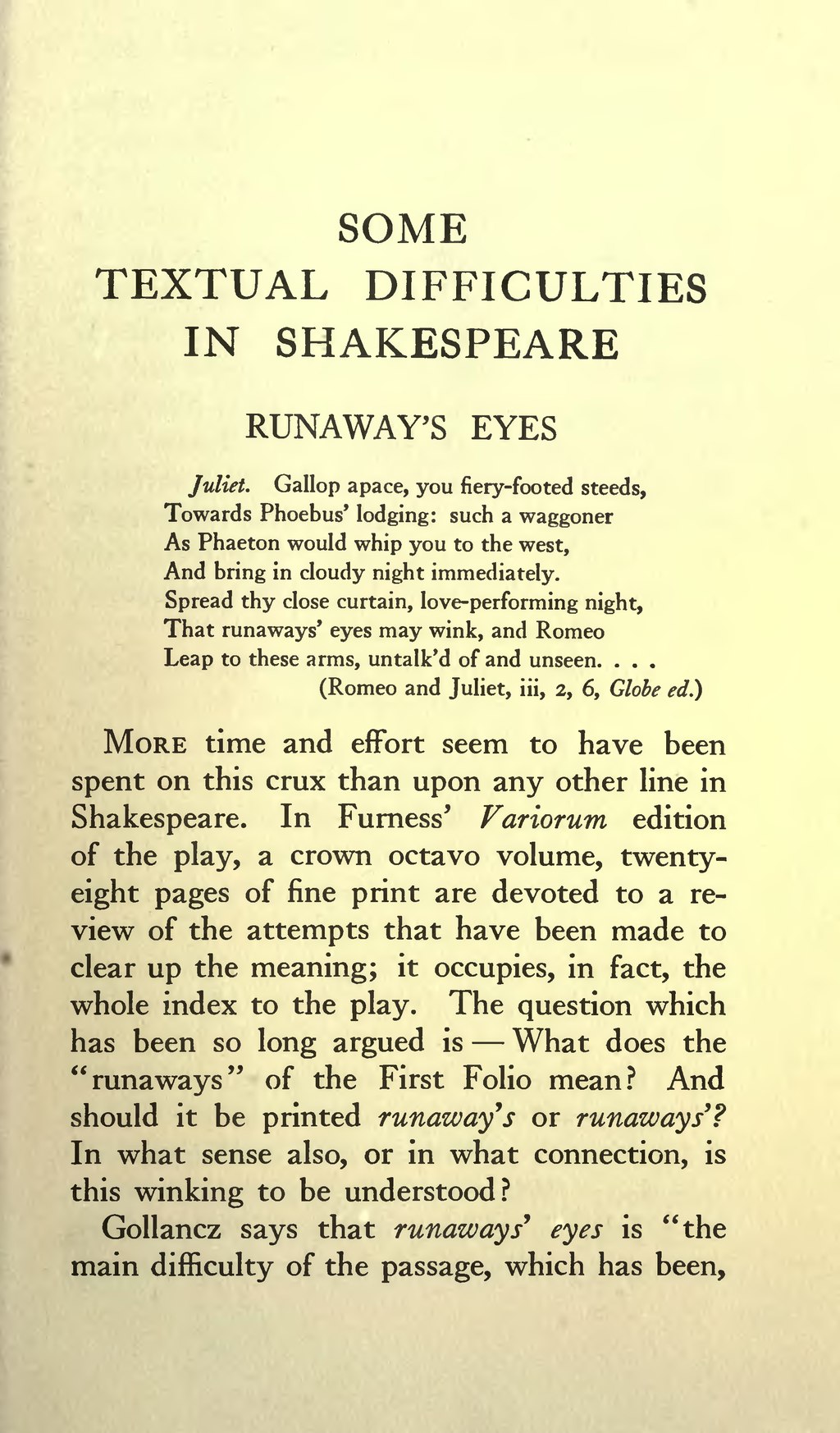SOME
TEXTUAL DIFFICULTIES
IN SHAKESPEARE
RUNAWAY'S EYES
Juliet. Gallop apace, you fiery-footed steeds,
Towards Phoebus' lodging: such a waggoner
As Phaeton would whip you to the west,
And bring in cloudy night immediately.
Spread thy close curtain, love-performing night,
That runaways' eyes may wink, and Romeo
Leap to these arms, untalk'd of and unseen. . . .
(Romeo and Juliet, iii, 2, 6, Globe ed.)
More time and effort seem to have been spent on this crux than upon any other line in Shakespeare. In Furness' Variorum edition of the play, a crown octavo volume, twenty-eight pages of fine print are devoted to a review of the attempts that have been made to clear up the meaning; it occupies, in fact, the whole index to the play. The question which has been so long argued is—What does the "runaways" of the First Folio mean? And should it be printed runaway's or runaways'? In what sense also, or in what connection, is this winking to be understood?
Gollancz says that runaways' eyes is "the main difficulty of the passage, which has been,
